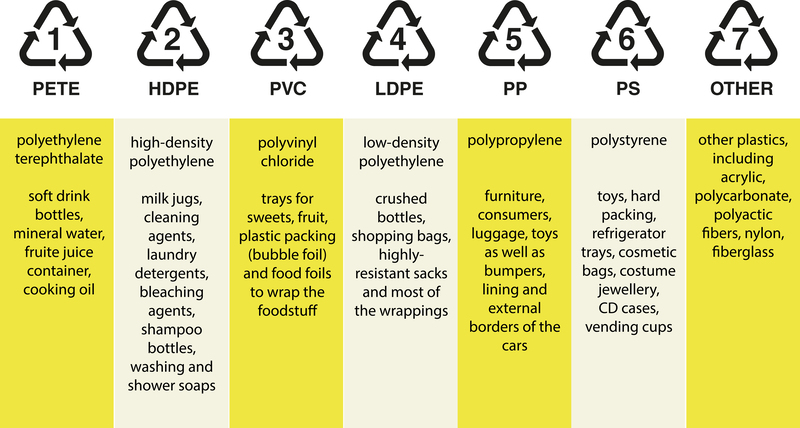Smart Choices to Save on Bulky Waste Item Collection
When it comes to managing the removal of larger unwanted items--such as mattresses, old furniture, and broken appliances--the challenge can feel much greater than everyday household waste disposal. Bulky waste item collection doesn't have to be expensive or environmentally harmful. In this comprehensive article, we'll explore the most effective smart choices to save on bulky waste item collection, ensuring you minimize both costs and your environmental footprint.

Understanding Bulky Waste Collection
Before delving into savings and smart solutions, it's essential to understand what qualifies as bulky waste.
- Bulky items are typically those that are too large or heavy for standard household waste bins.
- Common examples include sofas, wardrobes, refrigerators, mattresses, bath tubs, bicycles, rugs, and garden furniture.
- Bulky waste collection services are often offered by local councils, private companies, or specialized charities.
Why does managing these items cost more? Due to their size, unique disposal requirements, and the potential for recycling or special handling (e.g., fridges with refrigerants), dealing with bulky items can incur additional fees.
How Bulky Waste Impacts the Environment
Bulk items, especially those ending up in landfill, contribute significantly to environmental problems. Choosing responsible disposal options not only helps your wallet, but also supports a healthier planet.
1. Assess the Need: Are You Sure You Need Removal?
Before you seek removal options, ask yourself these important questions:
- Is the item still usable? Perhaps it could be donated or sold.
- Could you repurpose or upcycle it as a DIY project?
- Would it be cheaper or more practical to disassemble and dispose of parts?
Making this assessment can save you unnecessary costs and time.
Consider Donation or Selling
Charities, thrift shops, or online marketplaces like Gumtree, Facebook Marketplace, and Craigslist are excellent channels for rehoming large items. Some charitable organizations even offer free bulky item pick-up, which can eliminate collection fees entirely.
2. Know Your Local Council Services
Most local governments provide some form of bulky waste collection service. Reviewing the guidelines and options available in your area can unlock significant savings:
- Bulk collection days: Many councils offer free or subsidized bulky waste pick-up either seasonally or by appointment.
- Determine item limits: There is often a limit to the number or size of items per collection.
- Booking in advance is often required for heavily scheduled services.
- Some areas provide discounts for seniors, pensioners, or low-income households.
- Check for community clean-up events that include free bulky waste removal.
Review your council's website or call their customer service to avoid unnecessary spending on private services.
Insider Tip:
Combine your pick-up with neighbors or friends. Some council services charge per collection, not per item, so sharing a booking can split the cost.
3. Consider Private Bulky Waste Item Collection Alternatives
When council options are unavailable or insufficient, private removal firms are the next best choice. Shopping around can drastically lower expenses:
- Get multiple quotes to compare rates for bulky waste collection services.
- Be clear about the type and number of items to receive accurate pricing.
- Check for company reviews--cheap isn't always better if reliability or responsible disposal is at risk.
- Beware of hidden fees for items that require special handling.
- Ask about discounts for bulk loads or off-peak bookings.
Rent a Skip Bin or Man & Van Collection
For larger clean-ups or multiple items, skip bin hire or 'man & van' services may be the most affordable way to remove bulky waste--especially if you can share the cost with neighbors.
4. DIY Drop-Off: Take Items to a Recycling or Waste Center
Most regions have local tips, recycling centers, or transfer stations that accept bulky waste. Bringing your items directly often eliminates the collection fee, leaving you only with a minimal disposal charge (if any at all).
- Plan your trip: Find your closest facility and check their accepted items list.
- Many centers offer free drop-off for residents (proof of address may be required).
- Sort items by type--metal, wood, electronics--to take advantage of recycling streams.
- Reuse shops attached to waste facilities may accept items in better condition, increasing the chance for your item to avoid landfill.
- If hiring a van, consider scheduling several trips or group with others to split costs.
Benefits of DIY Disposal
DIY disposal puts you in control, helps you save on collection fees, and can maximize recycling opportunities. Additionally, some hazardous items (like fridges or electronics) may be processed free of charge through government e-waste initiatives.
5. Recycle, Upcycle and Repurpose: Creative Ways to Minimize Bulky Waste
Not all bulky items are fit for the landfill. With a little creativity, you can breathe new life into old furniture, mattresses, or appliances.
- Repurpose old wood from wardrobes or tables into storage solutions or shelves.
- Turn a tired sofa into outdoor seating with weatherproof covers.
- Disassemble and sell parts--wood, springs, foam, or metal can be offered to hobbyists or recyclers.
- Check online for DIY upcycling tutorials for everything from mattress springs to vintage doors.
Community Repair Cafes and Workshops
Many communities now have regular events or workshops where items can be repaired, redesigned, or upcycled for free or a small fee. This not only reduces your waste, but also builds community.
6. Bulk Waste Item Collection: Smart Scheduling and Timing
Like many services, the price and availability of waste collection can vary by time of year:
- Off-peak pricing: Collection is often cheaper outside of spring cleaning or pre-holiday demand spikes.
- Book early to secure discounted rates or share collection with other scheduled bookings in your area for lower charges.
- Watch for council "free collection" promotions which sometimes align with local events and festivals.
Leverage Your Local Community
Some neighborhoods host annual "skip amnesty" days or collect bulk items as a community project, bringing significant savings compared to individual bookings.
7. Always Demand Proof of Responsible Disposal
Whichever option you choose, insist on responsible handling:
- Request documentation: Reputable companies will provide receipts or transfer notes.
- Avoid "man with a van" solutions without credentials--illegal dumping fines can be passed onto you!
- Look for affiliations: Trusted waste operators are often listed on council websites or have regulatory registrations.
Smart Technology Solutions for Bulky Waste Removal
Advancements in technology have made finding and scheduling bulky waste item removal services easier than ever:
- Apps and platforms like LoveJunk, TaskRabbit, Airtasker or even Facebook groups can connect you with vetted, affordable local waste services.
- Online comparison tools aggregate prices to ensure you get the best deal.
- Take pictures of your items before scheduling: this helps providers quote accurately and avoids unexpected charges.
Evolving Trends in Bulky Waste Collection
Some areas now offer on-demand pick-up services where you can book and track collection in real time. Innovative cities are exploring shared collection zones and smart bin sensors, reducing costs for all residents.

Top Tips to Save on Bulky Waste Collection Costs
- Plan ahead: Early planning helps you find the lowest cost and most responsible option.
- Disassemble large items where possible to reduce the volume and therefore the fee.
- Group items with friends or neighbors for a shared collection.
- Explore all free options, from donation to community events, before booking a paid service.
- Don't forget resale and giveaway platforms--sometimes, buyers will collect for free.
- Always choose licensed, responsible providers to avoid legal or environmental consequences.
Conclusion: Make Smart, Eco-friendly, and Cost-effective Choices
Dealing with bulky waste doesn't need to strain your budget or harm the environment. By making smart choices when planning for bulky item removal, you can take advantage of local services, community solutions, and new technologies to save money and reduce waste. Always start by considering whether your items can be sold, donated, or reused, and prioritize reputable collection services that focus on recycling and responsible disposal.
Taking a proactive, informed approach ensures both your wallet and the planet benefit--it's truly a win-win. So, the next time you face bulky waste challenges, remember these tips to make the smartest choice!
